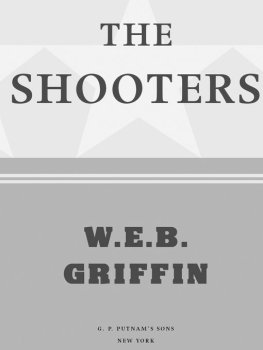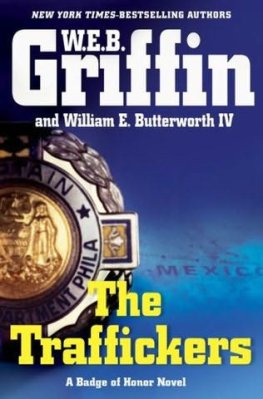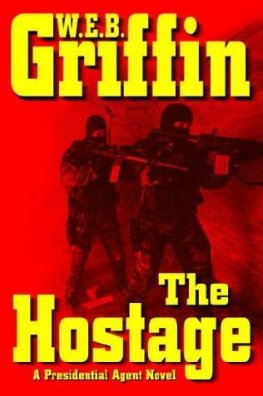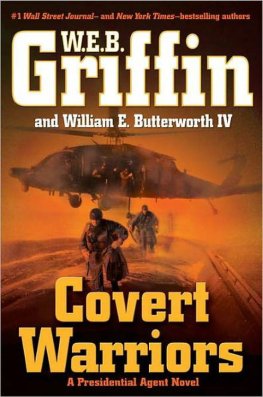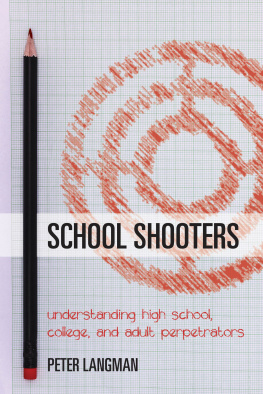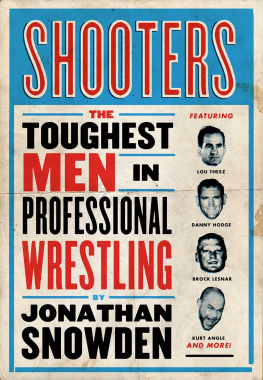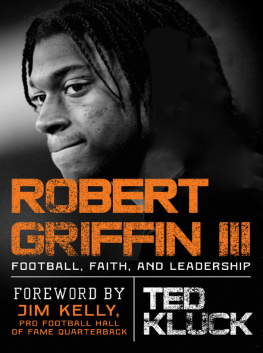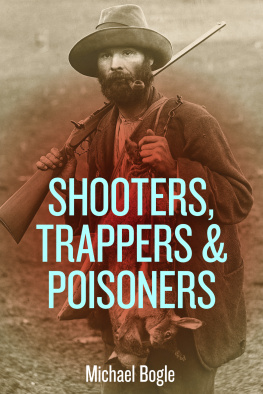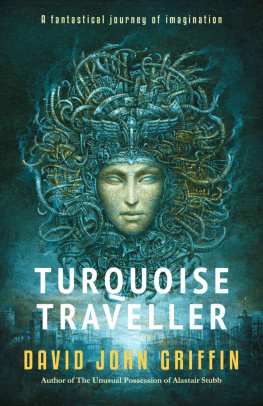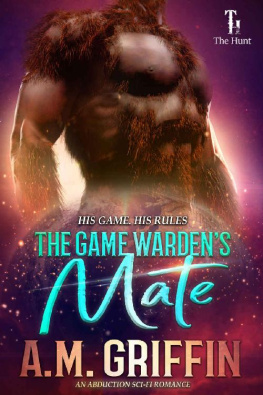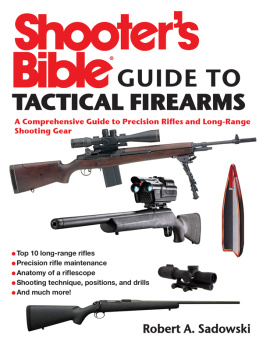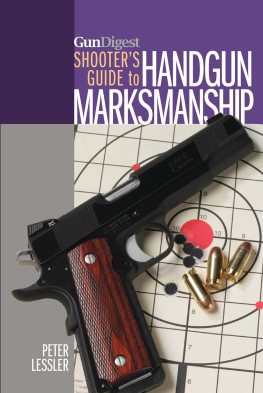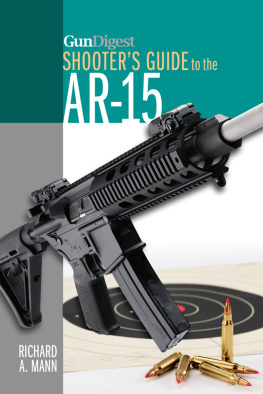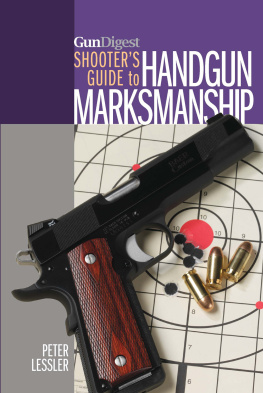W. Griffin - The shooters
Here you can read online W. Griffin - The shooters full text of the book (entire story) in english for free. Download pdf and epub, get meaning, cover and reviews about this ebook. genre: Detective and thriller. Description of the work, (preface) as well as reviews are available. Best literature library LitArk.com created for fans of good reading and offers a wide selection of genres:
Romance novel
Science fiction
Adventure
Detective
Science
History
Home and family
Prose
Art
Politics
Computer
Non-fiction
Religion
Business
Children
Humor
Choose a favorite category and find really read worthwhile books. Enjoy immersion in the world of imagination, feel the emotions of the characters or learn something new for yourself, make an fascinating discovery.
- Book:The shooters
- Author:
- Genre:
- Rating:5 / 5
- Favourites:Add to favourites
- Your mark:
- 100
- 1
- 2
- 3
- 4
- 5
The shooters: summary, description and annotation
We offer to read an annotation, description, summary or preface (depends on what the author of the book "The shooters" wrote himself). If you haven't found the necessary information about the book — write in the comments, we will try to find it.
The shooters — read online for free the complete book (whole text) full work
Below is the text of the book, divided by pages. System saving the place of the last page read, allows you to conveniently read the book "The shooters" online for free, without having to search again every time where you left off. Put a bookmark, and you can go to the page where you finished reading at any time.
Font size:
Interval:
Bookmark:
The shooters
W. E. B. Griffin
I
[ONE]
Airport Highway
Asuncion, Paraguay 1625 25 August 2005
When Byron J. Timmons, Jr., saw what was causing the airport-bound traffic to be stopped and backed up for at least a kilometer, he muttered an obscenity that was absolutely not appropriate for an assistant legal attache of the embassy of the United States of America.
The twenty-nine-year-old-who was six feet one and weighed two hundred five pounds-had a reservation on the Aerolineas Argentinas five-thirty flight to Buenos Aires and it looked to him to be entirely likely that these bastards were going to make him miss it.
Timmons looked at the driver of his embassy vehicle, a lightly armored Chevrolet TrailBlazer.
Franco Julio Cesar-a quiet thirty-nine-year-old Paraguayan national who was employed as a chauffeur by the U.S. embassy-was silently shaking his head in frustration. He, too, knew what was going on.
These bastards were officers of the Paraguayan Highway Police and they were running a roadblock. There was a Highway Police car and a Peugeot van on the shoulder. The van had a sliding side door-now open-so that it could serve as sort of a mobile booking station. Inside was a small desk behind which sat a booking sergeant. He would decide whether the miscreant caught by the roadblock would be simply given a summons or hauled away in handcuffs.
There were three police forces in Paraguay. In addition to the Highway Police, which was run by the Minister of Public Works amp; Communication, the Minister of the Interior had a Capital Police Force, which patrolled Asuncion, and a National Police Force, which patrolled the rest of the country.
The opinion Timmons held of all three was as pejoratively vulgar as the obscenity he uttered when he saw the Highway Police roadblock. His opinion was based on his experiences with the various police forces since arriving in Paraguay, and his criterion for judgment was that he thought of himself as a cop.
He actually had been a police officer, briefly, but the real reason he thought of himself as a cop was that that was what the Timmons family did-be cops.
His paternal grandfather, Francis, used to say that he was one of the only two really honest cops on the job in Chicago. He refused to identify the other one.
Francis and Mary-Margaret Timmons had five children, three boys and two girls. Two of the boys-Aloysius and Byron-went on the force. Francis Junior became a priest. Dorothy became Sister Alexandria. Elizabeth married a cop, Patrick Donnehy. Father Francis, who was assigned to Saint Rose of Lima's, spent most of his time as a police chaplain.
Aloysius and Joanne Timmons had four children, all boys. Three went on the force and one went in the Army. Byron and Helen Timmons had five children, three girls and two boys. Two of the girls married cops, and Matthew went on the force.
Byron Junior skipped the third grade at Saint Rose's, primarily because he was much larger than the other kids but also because the sisters understood that he already knew what they were going to teach him in the third grade-he never seemed to have his nose out of a book.
The sisters also got him a scholarship to Cristo Rey Jesuit High School. His Uncle Francis and his mother were delighted. His grandfather and father were not. They quite irreverently agreed that The Goddamn Jesuits wanted him for the priesthood.
At age sixteen, Junior, as he was known in the family, graduated from Cristo Rey with honors and without having felt the call to Holy Orders. He immediately became a Police Cadet, although you were supposed to be eighteen. Before the summer was over, the Society of Jesus reentered the picture.
Loyola University (Chicago) was prepared to offer Junior, based on his academic record at Cristo Rey, a full scholarship. This time his father and grandfather disagreed. His father offered another quite irreverent opinion: that you had to admire those tenacious bastards; they never give up when they're trying to grab some smart kid for their priesthood.
His grandfather disagreed, and suggested that Junior had two options.
One was to spend the next nearly four years in a gray cadet uniform riding in the backseat of a patrol car, or filing crap in a precinct basement someplace-he couldn't even get into the academy until he was twenty years and six months old-or he could spend that time getting a college education on the Jesuits' dime.
For the next three years, Junior studied during the school year and returned to the police cadet program in the summers. On his graduation, cum laude, he immediately entered the police academy. Three months later, he was graduated from there and-with most of the family watching-became a sworn officer of the Chicago Police Department.
He had been on the job doing what rookies do for six months when Grandfather Francis reentered the picture.
"Go federal," Grandpa advised. "The pay is better. Maybe the U.S. Marshals or even the Secret Service."
To which Byron-no longer universally known as "Junior" after he made good on a promise to knock his sister Ellen's husband, Charley Mullroney, on his ass the next time he called him that-replied that he'd already looked into it, was thinking of the Federal Bureau of Investigation, and going down that road, was really thinking of getting a law degree.
He told his grandfather he'd talked to people at Loyola, and they not only were going to let him in the law school but had arranged for him a job as a rent-a-cop on campus. Christ knew he couldn't go to college if he had to change shifts on the job every three months.
Byron graduated, again with honors, and passed the bar examination on his first try. By then he had just turned twenty-eight and had seen enough of the FBI to decide that wasn't for him. The Border Patrol looked interesting, but then he met a guy from the Drug Enforcement Administration whom his brother-in-law Charley Mullroney had been working with in Narcotics.
Stanley Wyskowski said Byron was just the kind of guy the DEA was looking for. He'd been a cop, and he had a law degree, and he spoke passable Spanish.
Actually, he spoke better than passable Spanish. He had the grammar down pat because he'd had Latin his last two years at Saint Rose's and his first two at Cristo Rey, and then he'd had two years of Spanish at Cristo Rey-somebody had tipped him that if you had Latin, Spanish was the easiest language-and four more years of it at Loyola. And he had polished his colloquial Spanish with a young lady named Maria Gonzalez, with whom he'd had an on-and-off carnal relationship for several years when he was at Loyola.
Wyskowski said if Byron wanted, he'd ask his boss.
Byron J. Timmons, Jr., entered the Federal Service two weeks later, as a GS-7. On his graduation from the Federal Law Enforcement Training Center at Glynco, Georgia, he received both his credentials as a Special Agent of the Drug Enforcement Administration and a promotion to GS-9, because of his law degree.
He was initially assigned to Washington, D.C.-the DEA is part of the Department of Homeland Security-where, he understood, they wanted to have a look at him. Two months later, they offered him his choice of the Legal Section (which carried an almost automatic promotion to GS-11 after two years), or The Field.
He had seen what was going on in the Legal Department-pushing papers held absolutely no appeal-so he chose The Field.
That wasn't the answer they wanted.
They reminded him of the automatic promotion that came with the Legal Section, and told him that the only vacancies in The Field were in El Paso, Los Angeles, Miami, Mexico City, and Asuncion, Paraguay. Timmons didn't like the sound of El Paso, Mexico City, or Los Angeles, and had only the vaguest idea of where in hell Asuncion, Paraguay, even was.
Font size:
Interval:
Bookmark:
Similar books «The shooters»
Look at similar books to The shooters. We have selected literature similar in name and meaning in the hope of providing readers with more options to find new, interesting, not yet read works.
Discussion, reviews of the book The shooters and just readers' own opinions. Leave your comments, write what you think about the work, its meaning or the main characters. Specify what exactly you liked and what you didn't like, and why you think so.

